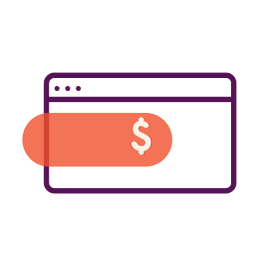As a small business owner, finding the right financing for your business can be a challenge. That’s especially true if you don’t fit the qualifications many traditional lenders such as banks want to see: at least two years in business, strong revenues and good credit scores.
That’s where a non-profit lender may be of help. It may be able to offer loans to businesses that are younger or have trouble getting financing.
What is a non-profit lender?
Non-profit lenders across the U.S. may offer a variety of loan programs for affordable housing, small business lending or other purposes. In the small business context, non-profit lenders often fall into one of the following categories:
- Community Development Financial Institutions (CDFIs) are organizations that provide affordable and responsible access to capital to disadvantaged individuals and communities. CDFIs may fall under the following structures: CDCs, community development banks, community development credit unions, community development loan funds, community development venture funds and microdevelopment loan funds.
- Certified Development Companies (CDC). CDCs are generally non-profit corporations that lend money primarily to non-profit affordable housing and business developers. CDCs may be certified and regulated by the Small Business Administration to package, process, close, and service SBA 504 loans.
- Economic Development Corporations (EDC) are typically established to assist existing and new businesses located in a specific geographic area by providing expertise, grants, and/or small business loans.
- Credit unions. Did you know that credit unions are not-for-profit financial institutions? Although many offer the same services as banks, credit unions are member owned and profits are returned back to members. They are not charitable organizations, though, and they still need to make sound financial decisions. They may offer more attractive terms to small business owners who obtain financing from them.
- Microlenders. Many microlenders are CDCs or EDCs but they may also be non-profit organizations that do not fall under those categories. Microlenders make smaller loans, usually less than $50,000, to disadvantaged entrepreneurs.
Benefits of working with a non-profit lender
There are three main benefits of working with a non-profit lender to get small business financing:
- Lower rates. Because profit is not a motive here, interest rates can be lower than your business may qualify for with for-profit lenders. Interest rates and terms on these loans can be significantly better than other financing options available to business owners.
- Flexible credit standards. Whether you have bad credit, or no credit (perhaps as an immigrant) you may find these organizations are more willing to work with you. You may not need to have excellent personal credit or good business credit.They will also often help you navigate the loan application process as well.
- Technical assistance. These loans often come with assistance from the sponsoring organization to help the business be successful. This can include entrepreneurship education, training and consulting.
Drawbacks of working with a non-profit lender
While these loans can be attractive, there are potential drawbacks:
- Harder to find. These non-profit lenders are often smaller and they don’t have a big marketing or advertising budget. They also often focus on a specific geographic area, which means you need to be within their service area in order to apply.
- Smaller loan amounts. With the exception of the SBA 504 program, which can fund large projects including real estate acquisition, loan amounts through these lenders are generally small. (The average SBA microloan is just over $14,000, for example.) Businesses that need larger loans may not find a non-profit lender to be a good option.
Are Non-Profit Lenders Right For Your Business?
Whether a non-profit lender is right for your business depends on a variety of factors:
- What do you need the money for? Because these loans tend to be for smaller amounts, they are often used for working capital, though it may be possible to get them for specific purposes such as purchasing equipment. However, if you have large capital needs you may need to look at more traditional lending sources, including banks.
- Can you get decent financing elsewhere? If you can qualify for an affordable business loan for your business through another lender, you may want to consider taking that funding. These organizations typically try to help business owners who can’t get a bank loan or other financing.
- Do you want and need help with your business? As mentioned, these loans often come with technical assistance which means you may be required to participate in educational or consulting programs. If you want to just get a loan and get back to business, other options (even a business credit card) may be a better fit.
- Do you need a grant and not a loan? Loans must be repaid and there will be financial consequences if you cannot repay them. Grants do not have to be repaid.
- Can you find a non-profit lender? Again, it can take a fair amount of research to find a non-profit lender that’s a fit for your business. That doesn’t mean it’s not worth the effort, but be prepared for the search.
Tip: Your local Small Business Development Center (SBDC) and or SCORE office may help you identify local non-profit lenders. These organizations are dedicated to helping small businesses increase access to capital. Find local assistance here.
Can a non profit get an SBA loan?
What if, instead of looking for a lender, you are a non-profit organization looking for a loan or other funding? Generally non-profit organizations are not eligible for SBA loans. SBA guidelines for 7(a) and CDC loans require the business applying be a for-profit business located in the U.S.
However, there are a few exceptions:
- A for-profit subsidiary of a non-profit organization may be eligible for an SBA loan if it otherwise qualifies. (Details can be found in the SBA Standard Operating Procedures page 117.)
- SBA Microloans are available to non-profit childcare centers only.
- Paycheck Protection Program (PPP) loans, a type of 7(a) loan made available through the CARES Act, were made available to qualified non-profit organizations through participating lenders. They offer loan forgiveness if used for specific purposes such as payroll costs. At the time this article was written, new PPP loans were no longer available. However, there is discussion in Congress about extending that program. Check here for updates.
- Economic Injury Disaster loans due to COVID-19 are available to non-profit organizations including 501(c)6s per the CARES Act. (In fact, the interest rate on these loans is lower—2.75%—for non-profits.) At the time this article was written, these low-interest EIDL loans are still available. (But EIDL grants are no longer available.) Learn more here.
Recommended Non-Profit Lenders
If you are interested in trying to get small business financing through a non-profit lender, here’s where to start:
Credit unions are located across the U.S. and are an alternative to a for-profit bank. There may be membership restrictions by geography or employment. Some are more active in small business lending than others. You can locate credit unions for which you may be eligible to join at ASmarterChoice.org.
Kiva is a non-profit crowdfunding platform that offers 0% small business loans of up to $15,000 for US-based businesses. (They also make microloans internationally.) It uses a crowdfunding platform to make funding available to small businesses. These term loans may be used for a variety of purposes including working capital. Perusing their site can give you an idea of how other borrowers are using funds borrowed through Kiva.
Accion Opportunity Fund is a global non-profit that helps connect entrepreneurs to affordable capital, educational resources, coaching, and networks. Through three certified Community Development Financial Institution (CDFI) affiliate partners it offers term loans from $300— $250,000. (Note: Accion is now called Ascendus.)
Grameen America is a non-profit organization that helps women who live in poverty to build businesses to enable financial mobility. It offers small loans (starting at no more than $2,000), financial training, and support to women owned businesses. Members open free savings accounts with commercial banks and make weekly deposits. It also reports microloan repayments to Experian, helping to build a positive credit history.
This article was originally written on November 12, 2020 and updated on June 2, 2023.



Have at it! We'd love to hear from you and encourage a lively discussion among our users. Please help us keep our site clean and protect yourself. Refrain from posting overtly promotional content, and avoid disclosing personal information such as bank account or phone numbers.
Reviews Disclosure: The responses below are not provided or commissioned by the credit card, financing and service companies that appear on this site. Responses have not been reviewed, approved or otherwise endorsed by the credit card, financing and service companies and it is not their responsibility to ensure all posts and/or questions are answered.